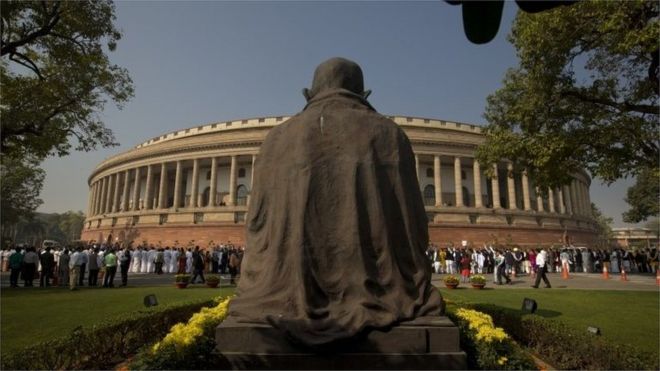Why do Indians vote for 'criminal' politicians?

Why do India's political gatherings field hopefuls with criminal allegations? Why do the voters support them in spite of their spoiled past?
Political researcher Milan Vaishnav has been examining joins amongst wrongdoing and majority rule government in India for a long time now. His forthcoming book When Crime Pays offers some fascinating bits of knowledge into what is an aggravating element of India's appointive majority rules system.
The uplifting news is that the general decision is a flourishing, tremendous work out: 554 million voters lined up at more than 900,000 stations to cast their tallies in the last version in 2014. The fortunes of 8,250 hopefuls speaking to 464 political gatherings were in question.
The awful news is that a third (34%) of 543 MPs who were chosen confronted criminal accusations, up from 30% in 2009 and 24% in 2004.
Furiously aggressive
A portion of the charges were of minor nature or politically propelled. Be that as it may, over 20% of the new MPs confronted genuine accusations, for example, endeavored kill, ambushing open authorities, and burglary.
Presently, India's general decisions are not precisely a cakewalk.
The Indian government officials confronting criminal accusations
Why do numerous India MPs have criminal records?
Legislative issues and the barrel of the weapon
After some time, they have turned out to be savagely focused: 464 gatherings were in the shred in 2014, up from 55 in the main decision in 1952.
The normal edge of triumph was 9.7% in 2009, the most slender since the principal decision. At 15%, the normal edge of triumph was fatter in the avalanche 2014 surveys, yet even this was incomprehensibly lower than, say, the normal edge of triumph in the 2012 US Congressional races (32%) and the 2010 general decision in Britain (18%).

Post a Comment